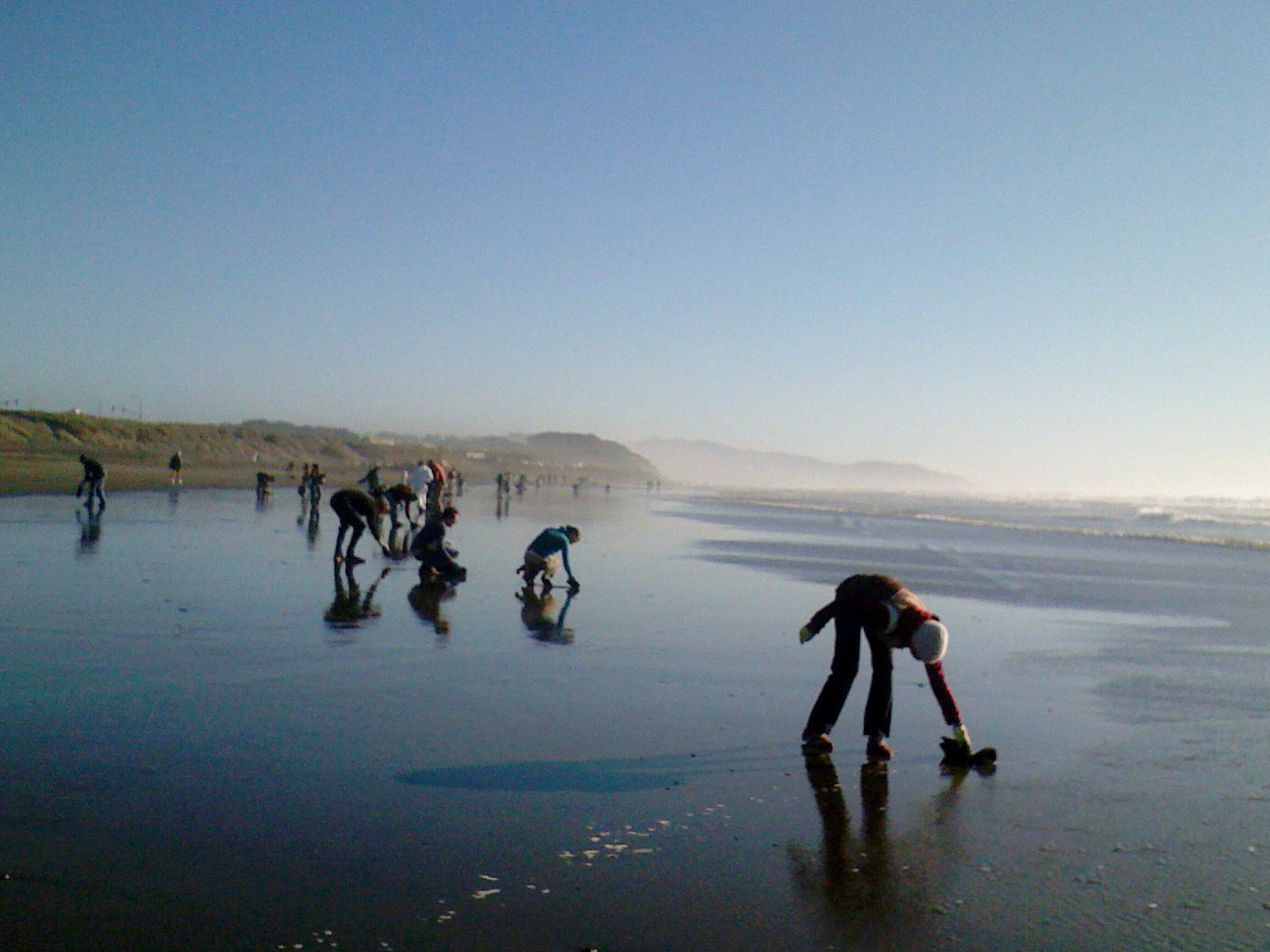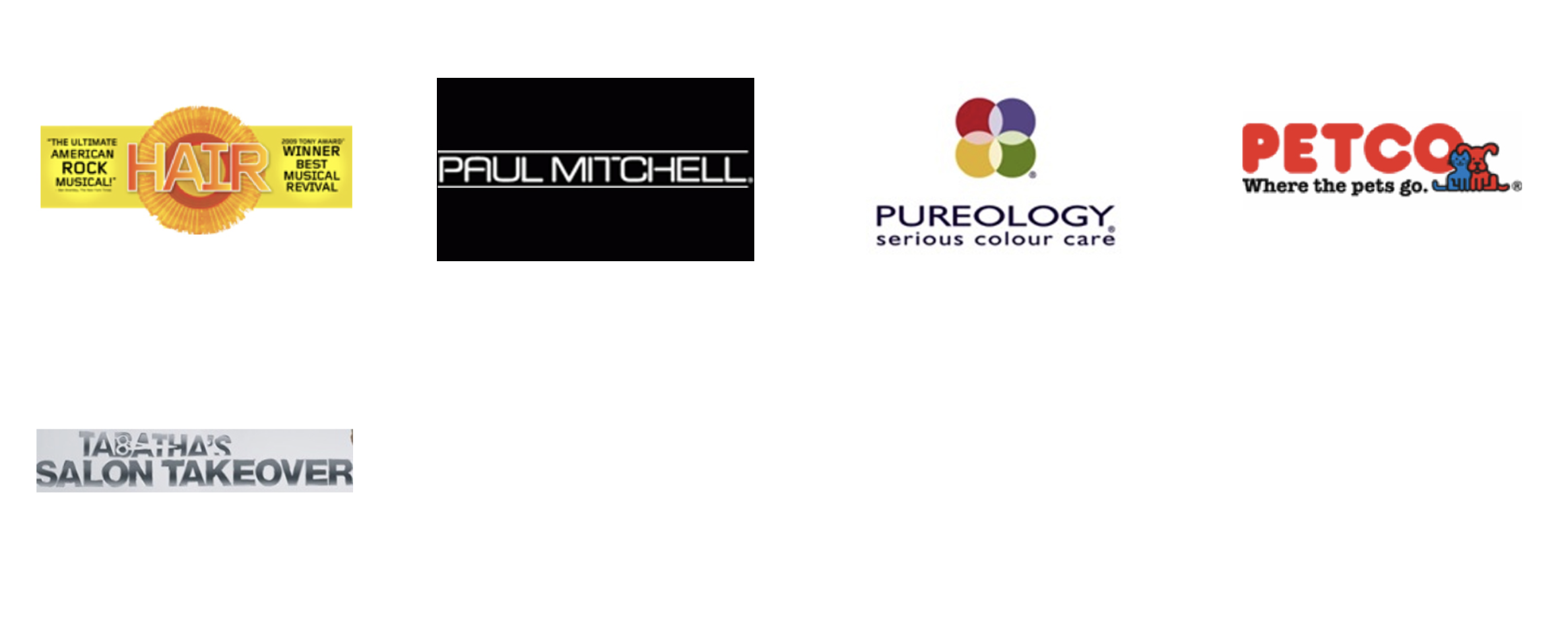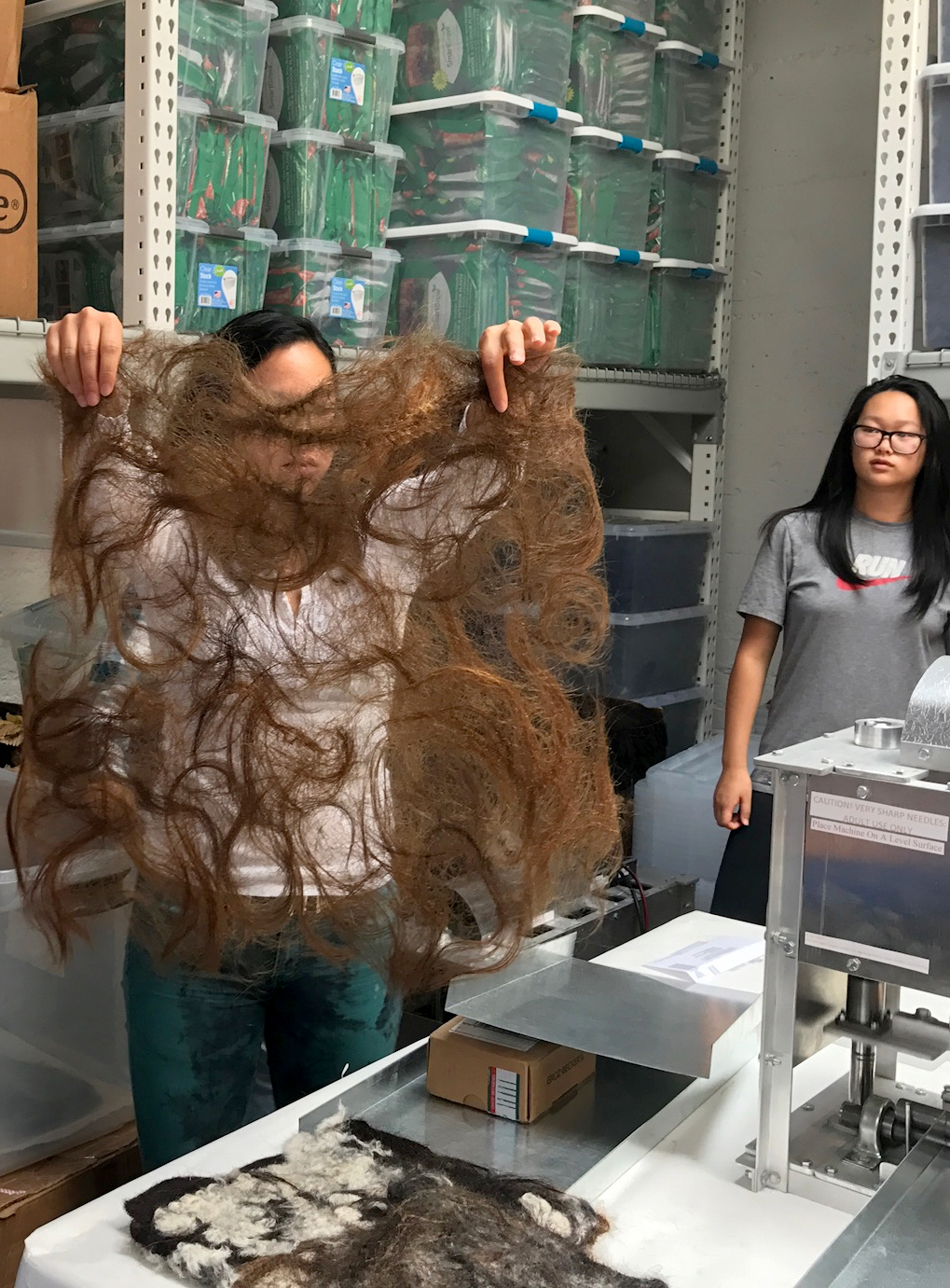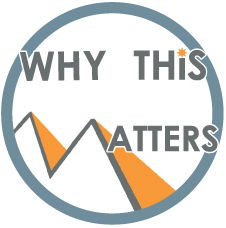Hair Matters Program History
Matter of Trust established the Hair Matters program to promote large-scale waste fiber recycling.
Using clippings of hair from salons, fur from pet groomers, fleece from farmers, and even laundry lint, we produce felted recycled fiber mats. These go to public works departments for use in storm drains. We also coordinate with emergency clean water efforts to supply stuffed sausage-shaped booms that can “sandbag” and protect coves and beaches. This program provides green jobs, as well as volunteer opportunities that are safe, non-hazardous, hands-on, and empowering during major oil spills.
In 1999, Lisa Gautier, Matter of Trust founder and President, began a partnership with Phil McCrory, a hair stylist and inventor from Alabama. Years earlier, Phil had been washing an oily head of hair while watching CNN coverage of otters covered in petrol during the famous Exxon Valdez accident in Alaska. It occurred to him that he was cutting fiber that could be used to soak up oil spills.
There are over 2500 oil spills a year on average. There are also over 370,000 hair salons in the US and over 200,000 pet groomers. They each cut on average two pounds (one kilo) of hair/fur per day. These fibers can be felted into mats or stuffed into recycled burlap sacks or pantyhose in order to make environmentally friendly booms and waddles which soak up oil.
In 2007, the cargo ship Cosco Busan accidentally hit the San Francisco Bay Bridge and spilled 58,000 gallons of Bunker C fuel into the water. Within hours, Matter of Trust coordinated efforts with hundreds of volunteers to place booms and mats along San Francisco’s Ocean Beach.

Phil McCrory, hair mat inventor, and Lisa Gautier, Matter of Trust founder.

Volunteers using hair mats to clean up Ocean Beach, 2007.


Lisa Gautier on mountain of hair booms made in response to the Gulf Coast Spill, 2010.
As SF locals, we were uniquely situated to work with surfers who came out by the hundreds to volunteer. They also sorted the clean-up debris materials on beach tarps. We were then able to conduct a remediation experiment to compost the oily hair waste from the Cosco Busan spill. At the Presidio National Park, we begin by treating the oily mats using oyster mushrooms donated from Fungi.com, then thermophilic composting, and finally vermiculture (worms) to turn the hazardous, bunker fuel waste into healthy compost over 18 months (see the study here). Composting is a viable alternative to conventional methods used for disposal of oil spill waste (for more information on composting visit our Global Compost Project). Haz Mat teams are legally responsible for oil spill waste disposal, which is typically incinerated or buried in lined landfills marked “hazardous waste.”
In 2010, Matter of Trust initiated a huge mobilization to gather waste fibers and make hair booms for the BP Deepwater Horizon Gulf Coast Spill. Nineteen warehouses – spread from Florida through Texas – received hair, fur, fleece, and nylons from donors of every zip code in North America and 30 other countries. Thousands of volunteers signed up to make booms and help the Gulf Coast. Many hosted “cut-a-thons,” “shave-a-thons” and “Boom B Qs” to collect donations and stuff nylons. These booms were mostly used in Alabama and Florida. We’d like to thank Amanda Bacon, Yente Sehman, Barbara Johnson, Daisy Suduran, New Orleans Ritz Carlton Salon, Ingrid Setzer, Hanes Inc. Hooters and many more for their help. Visit these links for more information and photos.
In 2011, Matter of Trust started its partnership with the Air Force, getting materials to them for initiating research.
In 2013, Matter of Trust opened their Eco-Center in San Francisco, California and expanded the Hair Matters exhibit, demos, videos and lesson plans. Many students have done wonderful “hair for oil spill “projects in science fairs all over the US!
In 2014, Matter of Trust partnered with Inlet Guard and FeltCrafts. InletGuard makes storm drain cages and we did a pilot study in Garland, Texas. This was successful and led to more cities and seasonal refills. Matter of Trust has been funding hair felting machine research and thanks to a partnership with FeltCrafts in New Mexico, a great design for our affordable, hair specific needle punchers was developed.
In 2015, Matter of Trust sent hair mats to municipalities in Texas for their storm drains.
In 2017, Matter of Trust opened its Eco-Industrial Hub in the heart of San Francisco, a city that gets 16 million tourists a year. We created this model factory site to make hair mats and have exhibits on clean air, water, energy and ideal materials. We plan to support other hubs throughout the US and beyond so that donors have many places to send fibers, and the shipping costs and carbon footprint can be much lower. Our goal is to promote local waste fiber collection and felting wherever there are harbors, ports, bays or simply storm drains. We’d like to think collecting waste fibers from salons and groomers could be the new “paper route like after school job.”

Betty Cheng with initial hair scrim educating new volunteers, 2017.

Volunteers making hair mats, 2018.
In 2018, Matter of Trust moved from research to starting to send hair mats to the Air Force. This involved scientists and engineers at the Air Force Civil Engineering Center at Tyndall Air Force Base in Florida, who explored the use of renewable natural fibers for filtration. Official press release.
We also partnered with the University of Technology Sydney Australia, which cited Matter of Trust in a paper stating hair is significantly better at adsorbing oil than all other materials.
In 2019, Matter of Trust started to send out more satellites giving them supplies and helping them get their feet off the ground
In 2020, our 2nd research paper exploring Matter of Trust hair mats by University of Technology, Sydney Australia was released and we also began standardizing hair mat production, as well as reaching out to more end users.

WHY THIS MATTERS?
Hair Matters hair mats check so many boxes. They are a renewable resource solution that grows right in front of our eyes. Purchasing hair mats supports clean water, zero waste, green jobs, while recycling and local cottage industry lower carbon emissions. Conventionally, oil spills are cleaned up by using petroleum-based polypropylene products. We don’t need to drill for oil to clean up oil, when there is so much natural, sorbent fiber available. Thank you for supporting this program!
